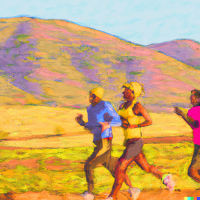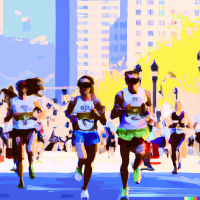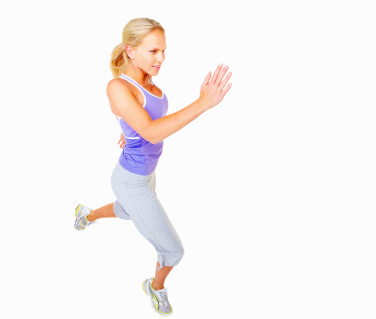Want to Improve My 5k Race Speed
by Paul
(Jackson, TN)

My PRs are:
400 = 58.5
800 = 2:12
1600 = 5:05
5k = 18:24
I've been working hard all summer working on my goal of 17:15 for a 5k.
I'm trying to run 5:40-45 mile splits in a 5k.
I'm having trouble running that time and end up running an average of 6:10-15 or so per mile.
Could you give me some workouts to do so that I can get my splits down to 5:40-45?
Thanks, Paul
Answer by Dominique:
Hi Paul,
Fantastic to hear from you. And great to hear you are ambitious and looking to improve your time on the tracks.
Based on the information you've provided, it seems like you're definitely giving it your all. Let's see how we can tackle this improvement together, shall we?
1. The Race Conversion Calculator - Some analysis
2. The big irony of running - the easy run
3. Some other tips to get faster
The Race Conversion Calculator - Some Analysis

Here's a quick summary of the calculator's results:
1. Your 800m time of 2:12 minutes translates to an expected 1,600m time of about 4:35 minutes (your time is 5:05).
2. That same 800m time also predicts a 5k (5000m) time of roughly 15:20 minutes (your time is 18:24).
3. Finally, the calculator estimated your 5k time to be around 17:00 minutes based on your 1,600m time of 5:05 minutes (your time is 18:24).
What does this tell you?
Put simply, if you had stamina to add to your speed, you'd really be on fire! You're able to run fast. And that's a great starting point. But now, you need to work on maintaining that speed over longer distances. That's where we'll need to focus your training.
The Big Irony of Running - The Easy Run

You haven't told me your current mileage levels. But the basics are: you need to build your easy runs and build up your long run.
If your current long run is 5 miles, just imagine if over time you make it 10 miles. Or even 13-15 miles. Your endurance will be so much higher. When you look at the training of elite 5k runners, you'll see two things:
1. They cover a massive amount of mileage
2. Most of their running is done at a fairly slow pace
Also check out the base building page for more information.
Other Tips to Get Faster

In addition to the slower running, I'd also recommend considering:
Strength Training
Adding strength training, whether it's body weight exercises, or weight lifting, can help improve your running economy and stave off fatigue. It also makes you more injury reslient.
Check out Strength Training for Runners for more information.
Speed Workouts
Fast, intense workouts improve your top speed and running economy. Once you've built up a solid aerobic base, you can start sprinkling these into your routine.
Also see the Running Workouts page that provides a summary of all types of running workouts to try.
Recovery
Rest is just as important as running. It's during recovery periods that your body rebuilds and gets stronger. Allow adequate time between intense workouts for recovery.
Remember, this base running might make you feel slow at first, especially when you return to more intense workouts. But don't worry – that's just your body re-adjusting. After a little while, you'll find you're not only able to run faster but also maintain that faster pace for longer.
Ultimately, the goal is to balance your raw speed with increased stamina. It might seem like an uphill battle when you start off, but with commitment, patience, and these strategies, you'll find yourself getting to your goals.
Keep in mind: your speed on the shorter distances indicates you are able to do this. It may be hard work, but you can get there. No doubts.
Keep at it, Paul! It's a journey, and every step takes you closer to your goal.
Kind regards,
Dominique



